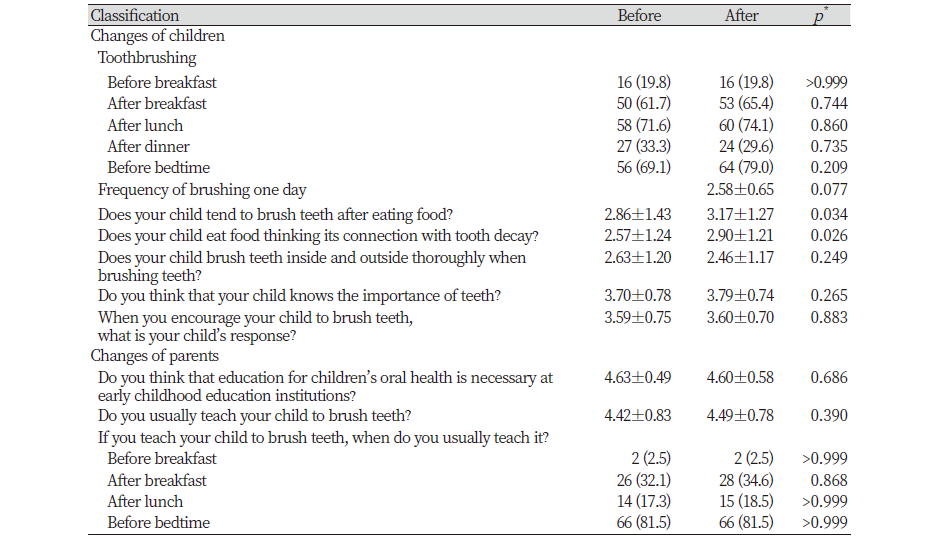Abstract
Objectives: This study aimed to check the effect of preschool visiting oral health education programs and provide baseline data for an oral health education program that suggests the necessity of oral health education in children’s living places. Methods: The preschool visiting oral health education was conducted with the parents of 3-year-old and 4-year-old children at a preschool in the jurisdiction of the Seoul Metropolitan Office of Education, with teachers observing the education, and oral health educators to examine the effect of the oral health education, the effectiveness of the education, the status of oral health care, and the degree of cooperation for the education. Results: Regarding oral health behaviors after the education program, the attitude toward brushing teeth after food intake increased from 2.86 to 3.17 and thinking of the relationship with dental caries and eating food increased from 2.57 to 2.90. The satisfaction with the children’s health education was very high at over 4.9 points in most items. The teachers’ interest in children’s oral care was 4.26 points, and the degree of their cooperation for education was 4.41 points; 96.4% responded that they were willing to conduct reeducation. Conclusions: Children’s oral health education should be conducted steadily and repeatedly.
Figures & Tables



